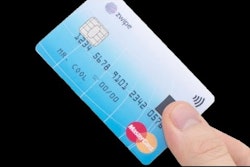
Business-to-business (B2B) buyers are beginning to expect the same easy ordering experience from their suppliers as they have when shopping on websites and mobile apps as consumers. For manufacturers and distributors who prioritize a more convenient omnichannel ordering experience for customers, B2B e-commerce and mobile commerce (m-commerce) are becoming a key differentiating factor. With B2B e-commerce sales expected to exceed $1 trillion by 2020, according to Forrester Research, manufacturers and distributors are investing more in technology.
Third-party software-as-a-service solutions are lowering barriers to entry, and companies are implementing e-commerce portals with more speed and ease than ever before. As more businesses jump on the e-commerce bandwagon, it’s going to be less of an adoption game of who can get there first, and more about who can provide the best experience, whether it’s on a computer or––increasingly––on mobile devices using native applications.
Building a Standout B2B e-Commerce Experience
B2B e-commerce is no longer the forward-thinking company’s best-kept secret. It is now a key channel for many manufacturers, brands and distributors. While the B2B purchasing process was once limited to phone calls, faxes and in-person sales interactions, today’s B2B buyers are demanding the convenience of 24/7 online ordering.
The bar for customer experience, however, is set high. As ubiquitous consumer sites like Amazon make online shopping easier and shipping speeds faster, buyer expectations continue to rise when it comes to e-commerce experiences in their work lives.
Many businesses are struggling to keep up with those expectations. As sites like Amazon continue to exert pressure on businesses to improve their online ordering experiences, there are definite opportunities for differentiation:
- Better content. B2B buyers have an insatiable desire for high quality, personalized content, from detailed product specs, customer-specific pricing and real-time stock levels to merchandising guidelines and product demo videos. Manufacturers and distributors that prioritize the depth and breadth of their B2B e-commerce site content have a distinct advantage.
- An intuitive experience. Companies that are able to accommodate the complexities of B2B purchasing (like customer-specific discounting, seller review, payment terms, ship dates, cancel dates and more), while maintaining a simple, intuitive user experience stand out significantly from competitors. This can be a difficult task, especially for brands trying to create B2B portals with e-commerce solutions originally designed for business-to-consumer (B2C) users.
- Targeted marketing. B2B e-commerce presents enormous marketing opportunities that brands must leverage to get the most out of their online portals. While contact between B2B brands and their customers was once limited to phone calls and in-person meetings, companies are now able to drive traffic to e-commerce portals through email marketing, promotions and other forms of web engagement.
- Faster fulfillment. Another straightforward way to provide an Amazon-like B2B e-commerce experience is to fulfill orders faster. To achieve this age-old goal, it’s important to not only improve warehouse operations and logistics, but it is also critical to look more closely at how orders are submitted for processing. Consolidating B2B e-commerce and field sales channels on a single platform can be key to not only more streamlined fulfillment, but also a greater ability to deliver a truly omnichannel experience.
These are all key ways in which manufacturers can––and must––differentiate their B2B e-commerce experiences today. With each passing day, however, B2B e-commerce is growing ever more mainstream. According to a recent report by Accenture, 86 percent of leading B2B companies surveyed already offer customers a way to place orders online, with just 14 percent not offering an e-commerce experience.
As the B2B e-commerce trend matures, it’s going to be more difficult to stand out from competitors on computers alone. Therefore, m-commerce is becoming an important new frontier for manufacturers and distributors looking to build compelling online ordering experiences.
The Importance of m-Commerce
Mobile devices are fundamentally changing how we communicate with others, search for information and consume content. It is also changing the way we buy. m-Commerce is a rapidly growing segment of e-commerce that reflects the anytime, anywhere habits of today’s average consumer and it’s quickly moving into B2B.
Mobile device usage already surpassed personal computer (PC) usage, and B2B buyers are increasingly turning to their smartphones and tablets to research work purchases. According to research by Usablenet, 56 percent of B2B buyers read reviews on mobile, 55 percent check out product information, 50 percent compare features, and 46 percent use mobile devices to search for and compare pricing.
m-Commerce is allowing manufacturers and distributors to create truly omnichannel experiences that allow buyers to place orders in whatever method they prefer. By giving customers many different ways to place orders, including via a sales rep, via a B2B e-commerce portal on the web and via a native mobile application, companies are making it easier to do business with them.
Customers take the path of least resistance when it comes to placing orders. Whether they’re on the go or in the store, checking out which shelves are empty and which products need to be replenished, the supplier that allows them to pull out their mobile device and place an order wins over competitors every time.
Like their B2C counterparts, however, B2B companies must prioritize m-commerce experiences that were designed specifically for mobile users. It isn’t enough to simply offer a mobile web version of one’s B2B e-commerce portal.
Michael Elmgreen is the chief revenue officer at Handshake.

















